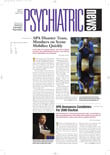When the new prescription drug program was being debated two years ago, Republican members of Congress threatened a veto if its 10-year costs were over $400 billion. Today much of what makes the act so complicated are the detailed provisions to make it affordable.
Consider the “clawback formula.” This little-known provision in the law requires states to help finance Medicare Part D out of revenues they are expected to save when “dual eligibles”—individuals who are eligible for both Medicare and Medicaid—begin coverage under Part D in January.
At that time, those individuals will no longer have prescription drug coverage under their state Medicaid plans, so the clawback formula allows the federal government to “clawback” some of those saved dollars.
But few things in Washington are without unintended consequences, and a formula that requires states to give money to the federal government is one that will also cause states to look for ways to reduce what they owe. And one obvious way to do that is to reduce the number of dual eligibles on their Medicaid rolls.
By law, states must provide Medicaid to poor elderly people and people with disabilities whose incomes are low enough to qualify them for federal Supplemental Security Income. But states are permitted to offer coverage to people with incomes above those limits, and 21 states and the District of Columbia have chosen to do so. (The 21 states are Arizona, Arkansas, California, Florida, Hawaii, Illinois, Maine, Massachusetts, Michigan, Minnesota, Mississippi, Missouri, Nebraska, New Jersey, North Carolina, Oklahoma, Pennsylvania, Rhode Island, South Carolina, Utah, and Virginia.)
As a result of the clawback formula, three states—Florida, Mississippi, and Missouri—are threatening to drop Medicaid coverage of dually eligible individuals who are over the SSI income limits, and North Carolina is considering following suit. States are not “locked in” to covering these optional beneficiaries and can drop them at any time.
“Dual eligibles dumped from Medicaid will suffer in two important ways,” according to a report by Families USA, a Washington, D.C.–based grass-roots advocacy organization. “First, they will lose an array of essential health care services that are covered by Medicaid, but not by Medicare. These services include dental, vision, and hearing coverage, as well as personal care services that allow them to remain at home rather than moving to an institution. Second, many will lose access to the drugs they need and/or will have to pay more for drugs.”
The Families USA report, “Trouble Brewing? New Medicare Drug Law Puts Low-Income People at Risk,” is posted at<www.familiesusa.org/assets/pdfs/Trouble_Brewing.pdf>.▪
